Celebrating IGG Graduates
Please join us in our celebration as we highlight our IGG graduates.
The profiles are sectioned by degree type:
Doctor of Philosophy
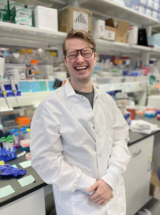
Daniel Aldridge
Mentor: Christopher A. Hunter, PhD
Thesis Title: IL-27 and the regulation of HSPC development during toxoplasmosis
Mentor Comment: Daniel was a positive influence in the laboratory with his dedication to his science and willingness to foster our community. He was always engaged with questions about other projects and a positive attitude to help with related experiments when needed. While his team spirit and sunny demeanor was appreciated, I found his willingness to engage intellectually and think deeply about his work was his most endearing feature. He was not afraid to keep learning.

Brittney Allyn
Mentor: Craig Bassing, PhD
Thesis Title: Elucidating Genome Topology Regulation of Antigen Receptor Diversification
Research and Lab Description: My thesis work focused on what mechanisms fold the Tcrb locus to facilitate long distance VDJ recombination.
Post PhD Plans: Postdoctoral Researcher, University of Pennsylvania
Mentor Comment: It was a pleasure to mentor Brittney. She pursued and completed a very aggressive project that required establishment of novel techniques for the lab and collaborating with another lab. Brittney leveraged her intellect, passion, devotion, management skills, and tireless work ethic to accomplish more than any other student who I had the pleasure to mentor during my 20 years at Penn.
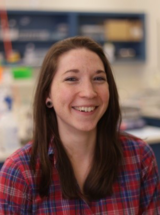
Emily Bettini
Mentor: Michela Locci, PhD
Thesis Title: Untangling the adjuvanticity of mRNA vaccines: Nucleoside-modified mRNA and lipid nanoparticles cooperate to drive T follicular helper cell responses
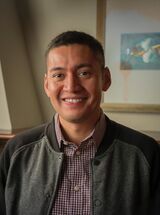
Jose Campos Duran
Mentor: Sarah Henrickson, MD, PhD
HHMI Gilliam Fellow
Thesis Title: Impaired purinergic axis as a novel mechanism of CD8+ T cell dysregulation in STAT3 gain-of-function syndrome
Research and Lab Description: The Henrickson lab seeks to understand T cell dysregulation in monogenic inborn errors of immunity. The lab leverages complementary approaches including detailed immunophenotyping, functional, and transcriptional assessment of immune cells in patients in order to identify mechanistic hypotheses to test in human cells and mouse models.
Post PhD Plans: My post-PhD plans are to remain in the Henrickson lab at the Children’s Hospital of Philadelphia as postdoc for a few months to finish up ongoing projects and manuscripts. My long-term goal is to transition into a Scientist/Senior Scientist position in industry.
Mentor Comment: Jose's thesis focuses on learning about basic human T cell immunology from a very rare disease and he showed remarkable persistence and dedication to uncovering underlying mechanisms of T cell dysregulation in this disorder. He developed a number of complex panels, optimized various complex assays and used that technical expertise to test key hypotheses in this system. I am very proud of Jose and he sets a very high standard as the first student to graduate from my lab.

Michelle Cully
Mentor: Michael J. May, PhD
Thesis Title: Loss of lymphatic IKKα disrupts lung immune homeostasis, drives BALT formation, and protects against influenza
Mentor Comment: Michelle’s thesis work emerged from a seminal finding she made during her initial lab rotation; that mice lacking a specific inflammatory signaling pathway in endothelial cells develop immune structures in their lungs and are protected against respiratory viral infection. Throughout her PhD, Michelle displayed enormous tenacity, ingenuity, and patience as she masterfully dissected the mechanisms underlying this ground-breaking observation. In pursuing her research, Michelle forged a new collaboration between our lab and Dr. Andrew Vaughan’s group that will remain in place for years to come. Michelle was an invaluable mentor for students in our lab, and she was excited to guide anyone who needed help through the techniques and approaches she had developed. Michelle is an extraordinary and accomplished scientist, and I have no doubt she will make lasting and impactful contributions to both science and society. It was my profound pleasure to work with you Michelle and I look forward to seeing the great things you will do !!

Amanda Finck
Mentors: Carl June, MD; Regina Young, PhD
Thesis Title: Ping Pong Dual CAR T cells: boosting in the periphery to enhance solid tumor efficacy
Mentor Comment: Co-mentoring Amanda alongside Gina Young has been a privilege. Amanda’s collaborative spirit, intellectual curiosity, and perseverance have not only enriched our lab but have also set a standard of excellence for her peers. Amanda joined our lab in 2020, during the challenging times of the COVID-19 pandemic. Despite the unprecedented circumstances that prevented her from conducting a traditional research rotation, Amanda demonstrated remarkable adaptability and dedication by co-authoring a comprehensive review article during that period, published with Saar Gill. In her academic endeavors, Amanda has made significant contributions to the field of biomedical engineering and immunotherapy. Her publications, ranging from analyses of single-cell omics to advancements in engineered cellular immunotherapies, have been recognized in esteemed journals such as Nature Communications and Nature Medicine. Throughout her graduate journey, Amanda has exemplified resilience and commitment, not only in her academic pursuits but also in her personal life. She and her college sweetheart, Nate—who is a dedicated teacher—celebrated their union with two weddings to ensure that all loved ones, especially her mother, could partake in their joy. Amanda's unwavering support for her mother during graduate school, including navigating medical appointments and clinical trials, speaks volumes of her character and determination.
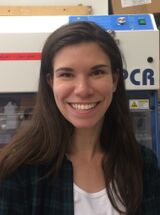
Eileen Goodwin
Mentors: Scott Hensley, PhD; Laurence C. Eisenlohr, VMD, PhD
Thesis Title: The impact of prior immunity on B cell responses to viral antigens
Research and Lab Description: Co-mentored by Scott Hensley and Ike Eisenlohr, my research examined the influence of circulating antibody on de novo B cell responses to viruses. My thesis includes work using a mouse model to characterize the effects of a passively administered anti-influenza antibody on the resulting B cell response to influenza vaccination, as well as human observational studies of serum antibody responses to primary SARS-CoV-2 infection to evaluate if pre-existing antibody to other coronaviruses affects the SARS-CoV-2 antibody response and clinical outcomes.
Mentor Comment: Eileen is a creative scientist who consistently thought about big experimental questions throughout her thesis work. She was not afraid to delve into unknown territories and pursue new scientific avenues. Her studies increased our understanding of how prior coronavirus exposures influence new immune responses against SARS-CoV-2, and how antibodies affect de novo immune responses against influenza viruses.
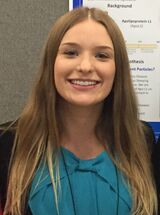
Breanne Haskins
Mentors: Christopher A. Hunter, PhD
Thesis Title: The role of dendritic cells in the generation of CD8+ T cell responses during Cryptosporidium infection
Mentor Comment: Breanne exemplified the very best features of our graduate program. Hard working, a team player and always on point scientifically. She was never afraid to question her own data sets or to embrace difficult experimental approaches. Breanne was also an independent thinker whose scientific rigor combined with her creativity and "get it done” attitude marked her as a lab stalwart. This was someone you’d want by your side in the scientific trenches.
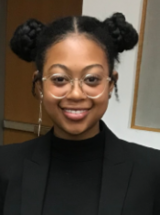
Erin Evonne Jean
Mentor: De'Broski Herbert, PhD
Thesis Title: Myeloid-derived IL-33 directs gamma delta T cell-dependent skin resistance against penetration by worms
Research and Lab Description: Evonne's thesis work was conducted in the lab of De'Broski Herbert at the University of Pennsylvania (currently Professor of Immunology at Tulane University). This research focused on uncovering protective immune response mechanisms against parasitic skin-penetrating helminths in which Evonne elucidated a unique pathway in which IL-33 induced gamma delta T cell accumulation in the skin which was required for secondary resistance against skin-penetration by helminths. This work was published in the Journal of Immunology in March 2025 (PMID: 40073150)
Post PhD Plans: Evonne is currently a post-doctoral researcher in the Gastroenterology Department at UPenn in the Nicole Maloney Belle lab
Mentor Comment: Erin "Evonne" Jean joined the Herbertlab shortly after the start of the pandemic in early 2020. Although starting with little research experience, Evonne singlehandedly created a novel mouse model of percutaneous infection with the soil-transmitted helminth Strongyloides ratti, and their recently published work revealed a critical role for myeloid-derived interleukin 33 signaling in gamma delta T cell biology. As an IGG student, Evonne traveled to Belgium and South Africa to present their work and received many awards including best presentation at the annual New York Immunology Conference. Evonne is currently a postdoctoral scientist in the laboratory of Nicole Maloney Belle MD/PhD in the Perelman School and has long-term goals of pursuing a career in science communications.

Seble Negatu
Mentor: Kellie Ann Jurado, PhD
Public Health Certificate Program (PHCP) Certificate
Thesis Title: Forebrain organoids reveal neuronal capacity to elicit protective antiviral responses
Research and Lab Description: Seble Negatu completed her PhD in the Jurado lab which focuses on immune crosstalk in early life and women’s health. Her thesis, titled “Tissue architecture and intercellular communication: Mediators of protective or pathogenic interferon responses,” highlights the delicate balance of interferon signaling to avoid unwarranted responses that can be detrimental to the host. Her work revealed that these responses rely on tissue architecture and intercellular communication. Specifically, infection of forebrain organoids or mouse models with La Crosse virus revealed mechanisms of protective interferon responses. In contrast, type I IFN exposure of fetal extravillous trophoblasts at the maternal-fetal interface during pregnancy limited vascular remodeling, which is crucial for successful implantation. By exemplifying both protective effects (forebrain organoid and mouse models) and pathogenic consequences (implantation-on-a-chip) of robust IFN responses, Seble’s work emphasized a need for future studies focused on how balanced immune responses are regulated.
Post PhD Plans: Seble Negatu will be a post-doctoral fellow in the Dr. James A. Ferguson Emerging Infectious Diseases Graduate Fellowship program. She will be conducting epidemiological research at Pennsylvania state public health department.
Mentor Comment: Seble is an exceptional scientist and individual, and I was lucky to have her join my research group as our first PhD student. Seble’s thesis work revealed the capacity for neural progenitors to act as active bystander cells that prevent viral replication and spread. Excitingly, her work uncovered distinct regions of bystander progenitors and defined critical underpinnings of protective antiviral responses in the brain. Seble absolutely flourished during her time at Penn-she was an inaugural Penn Presidential PhD fellow, CDC Ferguson fellow and won several talk awards (international and local). As if this wasn’t enough Seble simultaneously pursued a dual degree and earned an MPH alongside her PhD! Seble has an insatiable hunger for learning and moves forward with a purpose-driven mindset. Inspiringly, Seble is also intentional about ensuring she leaves a positive impact on her lived communities through fostering inclusive community and outreach efforts. I feel extremely fortunate to have had the opportunity to serve as Seble’s thesis advisor and bear witness to her immense growth these past few years. Seble, I am so grateful for your spirit, tenacity, rigor and all-around brilliance! I look forward to celebrating your continued success! Congratulations Dr. Negatu, I am so proud of you!

Eric Rodríguez Lopez
Mentors: David Hill, MD, PhD; Laurence C. Eisenlohr, VMD, PhD
Thesis Title: Epithelial cell-intrinsic regulation of food antigen-dependent eosinophilic esophagitis
Research and Lab Description: Eric was co-mentored by the labs of David Hill and Ike Eisenlohr. In collaboration with both labs, he studied how epithelial cells in the esophagus can act as unconventional antigen presenting cells, and how this is important for dampening allergic inflammation observed in food antigen-driven eosinophilic esophagitis.
Post PhD Plans: Eric currently works as a medical laboratory scientist specializing in flow cytometry. He plans to get certified by the American Society of Clinical Pathology in order to become a clinical laboratory director in the future.
Mentor Comment: Eric is a person of exceptional integrity and passion, with a deep sense of personal identity and a strong commitment to his community. His ability to positively impact those around him is a testament to his character and dedication. Eric possesses an impressive depth of knowledge in the mammalian mucosal immune system and he can apply this expertise in practical and innovative ways. His intellectual curiosity and drive make him well-equipped to tackle future challenges, and we are excited to see the many great things he will accomplish in his career.
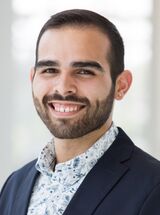
Victor Vazquez Marrero
Mentor: Sunny Shin, PhD
Thesis Title: Dendritic cells activate multiple cell death pathways to restrict Legionella infection
Research and Lab Description: Víctor was mentored by Dr. Sunny Shin. He studied how different innate immune cell types respond to the bacterial pathogen Legionella pneumophila. He found that murine dendritic cells restrict Legionella replication by activating pyroptosis and effector-triggered apoptosis. He also found that in Legionella-infected human monocytes the cytokine granulocyte macrophage-colony stimulating factor (GM-CSF) enhances inflammatory responses by engaging multiple signaling pathways.
Post PhD Plans: Víctor has accepted a postdoctoral position in the laboratory of Dr. Denise Monack at Stanford, where he will study innate immune responses to Salmonella.
Mentor Comment: It has been such an honor and joy for me to serve as Victor’s PhD advisor and mentor. Victor joined my lab in Summer 2020. Despite the many challenges associated with the pandemic, Victor displayed enormous perseverance and resilience throughout his thesis research. His research provides fundamental new insight into how different human and mouse innate immune cell types respond to and control the bacterial pathogen Legionella pneumophila. In addition to his research, Victor performed considerable service within Penn and the greater scientific community. Victor is also highly committed to mentoring the next generation of scientists, and he mentored a large number of undergraduate, postbaccalaureate, and rotation students, all of whom are co-authors on his two manuscripts. Congratulations Victor, I am so proud of you and I look forward to seeing your continued success!
Combined Degree, MD-PhD
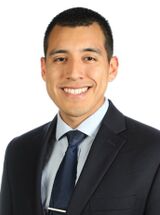
Diego Espinoza
Mentor: Amit Bar-Or, MD
Thesis Title: Cross-compartment immunology of pediatric neuroinflammatory disease
Research and Lab Description: My thesis research centered on identifying the distinct immunopathology of pediatric-onset multiple sclerosis and other neuroinflammatory disorders.
Post PhD Plans: Child Neurology residency at Boston Children’s Hospital
Mentor Comment: Diego’s superb tenure in our lab was seminal in helping us introduce 10X and Cite-Seq analyses, as well as build a robust cerebrospinal fluid (CSF) collection pipeline as part if our innovative care platform, in which analyses contributed to both clinical consideration as well as novel discovery in neuroimmunology and autoimmunity. Diego himself was an amazing mentor and has left an indelible legacy of dynamism, maturity and thoughtfulness. We miss him already!

Casey Lee
Mentors: Christoph Ellebrecht, MD; Aimee Payne, MD, PhD
Thesis Title: Asymmetric Cell Division as a Mechanism of Fate Induction in Genetically Engineered T Cells
Mentor Comment: Casey has been an outstanding scholar and experimental scientist throughout his training at Yale and now Penn, matched with outstanding citizenship within the laboratory and his natural talent at mentoring. Casey’s thesis research leading to his first author Nature publication describing asymmetric cell division in CAR T cells was exceptional – much of it requiring long hours in the lab plus initiative and scientific intuition, since the studies had not been performed previously and there was no large body of work to guide his experimental design. This was a tour de force work highly deserving of the PSOM Research Paper Prize. We look forward to following his future career successes!
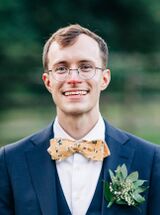
Sam McCright
Mentor: David Hill, MD, PhD
Thesis Title: Regulation of lung innate immune cell phenotype and function by dietary lipids
Research and Lab Description: For his thesis work in the lab of Dr. David Hill, Sam investigated the mechanisms by which dietary lipids influence the innate immune system in the lung, specifically in the context of obesity-associated asthma.
Post PhD Plans: return to medical school, complete MD-PhD training, and apply to residency in pathology.
Mentor Comment: Sam is an exceptionally hardworking and dedicated scientist who demonstrated remarkable attention to detail throughout his research. He played an integral role in designing, executing, and effectively communicating his projects, and his thesis work yielded highly impactful insights into the relationship between diet, immune homeostasis, and inflammatory lung disease. Beyond his scientific acumen, Sam is an outstanding communicator and collaborator—personable, professional, and respectful in every interaction. These qualities, combined with his impressive intellectual rigor, will make him an exceptional physician-scientist. I feel truly privileged to have had the opportunity to contribute to his growth and development, and I am confident that his future is exceedingly bright.
Combined Degree, VMD-PhD
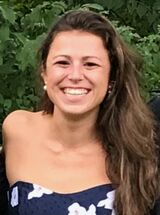
Megan Clark
Mentor: Jorge Henao-Mejia, MD, PhD
Saul Winegrad Award for Outstanding Dissertation
Thesis Title: Mitochondrial NDUFA4 is a functional switch controlling tumor-associated macrophages and tumor immunity
Research and Lab Description: Understanding genetic mechanisms which govern tumor-associated macrophage transcriptional programs, with the goal of reprogramming TAMs to augment anti-tumor immunity
Post PhD Plans: Finish my VMD at PennVet, then an academic postdoc following that (TBD)

